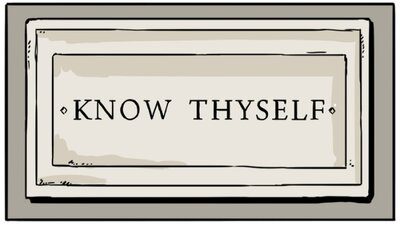Chinese military strategist and author of The Art of War, Sun Tzu, wrote, “If you know the enemy and know yourself, you need not fear the result of a hundred battles. If you know yourself but not the enemy, for every victory gained you will also suffer a defeat. If you know neither the enemy nor yourself, you will succumb in every battle.” The battle to conquer oneself is a life-long journey, as what got you to become good would not necessarily get you to become great. The key is to lose the battle and win the war. The battle never ends with the vicissitudes, trials, and tribulations of life, but by conquering oneself with self-awareness and self-compassion, the war will be won. As Swiss psychiatrist and psychoanalyst Carl Jung once said “One who looks outside, dreams. One who looks inside awakens.”
To be yourself in a world that is constantly trying to make you something else is the greatest accomplishment.” ― Ralph Waldo Emerson
Meditations
Daily Calm with Tamara Levitt – Creative Play
When we were children, we took any opportunity to be playful. We had no fear; it didn’t matter whether it was good; what mattered was that it was fun. As we age, the story changes. We go to great lengths to avoid feeling Incompetent or looking foolish. As adults, if we don’t feel competent with an activity we stop doing it. So we stick with what we are good at.
When we de-priortize creativity, we miss fun, play and joy. Creative expression reduces stress and improves our quality of life. It also helps us access subtle thoughts and emotions, so it is a cathartic means of self-expression. By applying the principles of non-judgment and non-attachment, we can approach a creative endeavour not to produce a masterpiece but rather to enjoy a process. By calling on self-acceptance, we can quiet criticisms about our level of skill and strengthen our courage. By embracing a state of curiosity, we can approach the blank canvas with a sense of wonder at what our imagination may bring to it.
Every child is an artist. The problem is how to remain an artist once we grow up. – Pablo Picasso
Daily Jay with Jay Shetty – The Language of Happiness
We fixate on happiness when the reality is that there is so much more we can feel that is also wonderful, like joyful, exuberant, or ecstatic. When we intentionally broaden our language, we broaden our awareness too. Suddenly we notice when we feel fascinated, motivated, delighted, excited, or amazed.
But if we only hone in on happiness, we might miss out on the beautiful spectrum life has to offer. There is such a rich assortment of wholesome feelings, including all. This is what scientists call emotional granularity. It is about being able to describe our emotions in more specific and nuanced ways. For example, you don’t just feel good; you feel hopeful or enchanted or maybe curious, inspired, or intrigued.
Research shows that when we build this particular linguistic muscle of being able to describe all of our feelings, the good and the bad, in more detailed ways, we begin to understand ourselves better. We also begin to communicate with others more clearly. When we make the mindful choice to recognize our wide range of potential emotions, we can shift our perception.
Daily Trip with Jeff Warren – The Strength of Self-Compassion
Self-compassion is recognizing that you are experiencing a challenging moment. It is caring enough about yourself to respond kindly without harsh judgment. Self-compassion is about strength, and there isn’t a whip of sentimentality. Our culture primes us to think that being vital means being hard on yourself. Do what works to make you settle, even just a little bit. In the settling, you find somewhere a little solid to stand.
Podcast
- The Expert Who Can Predict When You’ll Die: Gary Brecka – The Jay Shetty Podcast
All the best in your quest to get better. Don’t Settle: Live with Passion



Comments are closed.